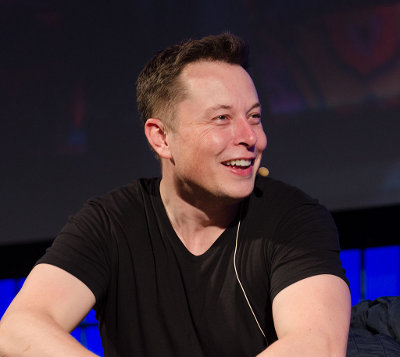
Elon Musk (photo ©Dan Taylor / Heisenberg Media), CEO of SpaceX and Tesla Motors, has never hidden his ambition to bring his spacecraft to Mars. Recently, in particular the unveiling of the Dragon V2 spacecraft, brought him back to the spotlight with new statements and interviews in which he talks a bit about his plans.
In the past, Elon Musk stated that he opened SpaceX with the ultimate goal of developing the technologies needed to bring people to Mars. For him it’s not just a scientific mission aiming to carry astronauts to the red planet to study it in person but to found a colony.
Elon Musk’s idea is to start with a small outpost that is supposed to get expanded over time. A true colony should be self-sufficient so the first groups should carry to Mars what is needed to build the infrastructure to get as much material as possible locally. That will be used to build habitats, produce the food and anything that can be produced on Mars.
According to Elon Musk, the outpost on Mars should be expanded over time to become a colony of 80,000 people. He thinks the technologies needed to start this project will be available by 2020. At that point, people who want to become Martian colonists can buy a ticket to the red planet that could cost $500,000. Musk himself plans to move to Mars after he retires.
Some time ago, Elon Musk spoke to the Royal Aeronautical Society in London, where he explained his plans for the development of reusable rockets to be used for launches to Mars. SpaceX is carrying out several tests of controlled landing that will serve to make the first stage of the Falcon 9 rocket but also the spacecraft Dragon V2 totally reusable. This will greatly reduce the cost of launches, opening a new era for space travel.
Certainly, many other technological developments are needed to bring people to Mars and especially to allow them to build a colony that can become autonomous within a few years. Elon Musk’s plans are certainly ambitious but he’s not the only one who’s convinced of the need to establish a colony on Mars. For example, the nonprofit organization Mars One has been working for some time to select potential settlers.
For Elon Musk, colonizing Mars is also a way to ensure the survival of the human species in case a disaster strikes the Earth. When the next asteroid hits the Earth or the next supervolcano blows up, a colony on Mars or anyway one autonomous from the Earth may be the best insurance for the continuation of the human species.
[ad name=”AmazonDocumentary”]


Permalink